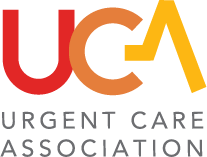
Urgent Care Association
“The year-over-year growth across the country shows the importance of urgent care in today’s healthcare marketplace, as today’s patients seek affordable healthcare options, shorter wait times and more convenient access to care,” said Laurel Stoimenoff, PT, CHC, CEO of UCA.
WARRENVILLE, Ill. (PRWEB)
February 24, 2020
According to the annual Benchmarking Report from the Urgent Care Association (UCA), the total number of urgent care centers in the U.S. reached 9,616 as of November 2019, representing growth of 9.6% from the prior year. The report also indicates that almost 97% of urgent care patient encounters lasted one hour or less, demonstrating the quick and convenient service that meets the on-demand access to care important to patients today.
“The year-over-year growth across the country shows the importance of urgent care in today’s healthcare marketplace, as today’s patients seek affordable healthcare options, shorter wait times and more convenient access to care,” said Laurel Stoimenoff, PT, CHC, CEO of UCA. “To meet public demand and trends, the industry continues to innovate and expand by leveraging technology, new services and evidence-based medicine including telemedicine, physical therapy, occupational medicine and more.”
Improving Antibiotic Stewardship in Urgent Care:
Urgent care operators are focusing on measurement and educational practices around antibiotic stewardship. According to the report, 98% of all respondents indicate that they have at least one monitor in place to oversee antibiotic prescribing. Many centers report analyzing diagnostic codes regularly to determine if prescribed antibiotics are appropriate, as well as using in-office communications to educate patients and family members.
“Urgent care providers see a high volume of patients with acute, infectious disease-related symptoms, which results in a greater need for antibiotic stewardship. It is gratifying to see how the industry has responded to this looming crisis,” said Stoimenoff.
Expanding Access to Telemedicine:
Telemedicine continues to gain traction as a vehicle for urgent care treatment, with more and more clinics planning to incorporate telemedicine into their business. According to the report, 30% of respondents who are not currently offering telemedicine services intend to do so within six to twelve months.
Telemedicine promises to increase access for patients across the country, particularly in underserved communities. These services help alleviate crowded emergency departments while reducing the impact of physician shortages in communities nationwide.
UCA and Merchant Medicine collaborated on the annual report, bringing deep, industry insight to the data. This year’s report also cites median compensation levels by position, largest hospital-based urgent care organizations, largest non-hospital-based urgent care organizations, reimbursement per visit, visits per day, immunization tracking (e.g. influenza vaccines) and more.
The full 2019 Benchmarking Report on urgent care and on-demand industry growth and trends is available for purchase on the UCA website at http://www.ucaoa.org/benchmarking. More information about the UCA can be found at http://www.ucaoa.org.
About the Urgent Care Association
The Urgent Care Association (UCA) is a membership association of leaders, providers and suppliers in the field of on-demand, consumer-focused healthcare. UCA advances the industry and supports member success through advocacy, research, education, collaboration and high standards of care. The association maintains an active online presence and member community for daily exchange of best practices. For more information, visit https://www.ucaoa.org/.
Share article on social media or email:

